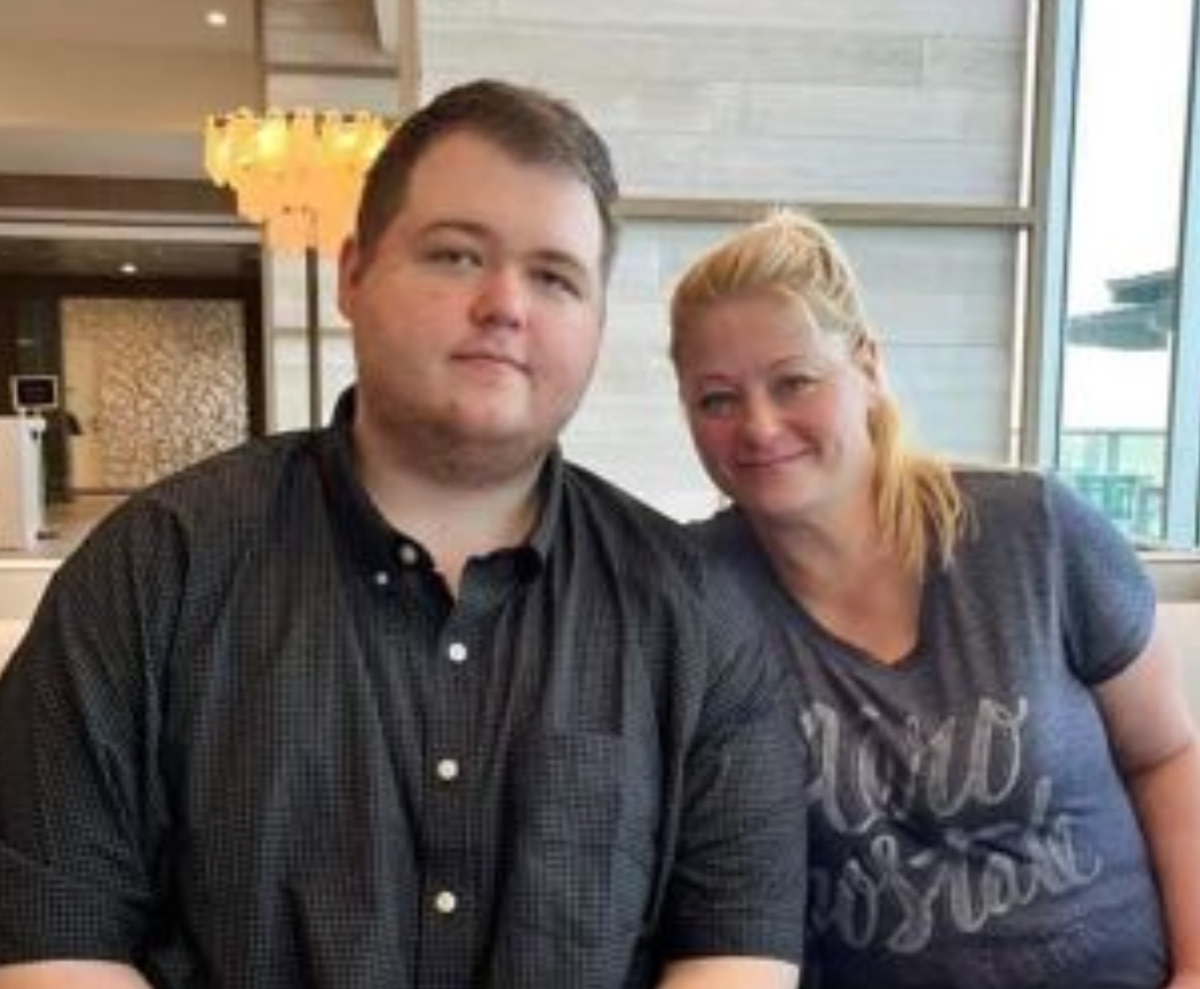
Months before Colorado Springs shooting suspect Anderson Lee Aldrich allegedly opened fire at an LGBT+ nightclub, they left an ominous and accusatory voicemail for a local newspaper that had opened an investigation into their previous run-ins with law enforcement.
The Colorado Springs Gazette published a recording of the voicemail left at its office on 26 August, just three months before the 22-year-old, who was booked into the El Paso County jail on Tuesday and is being held without bail, would be arrested for allegedly carrying out a massacre that left five dead and another 18 injured.
Aldrich, who identifies as nonbinary, according to their lawyers, was seen in court on Wednesday via video stream with numerous apparent wounds to the face and neck. According to clubgoers, multiple patrons at Club Q tackled the 22-year-old and managed to wrestle away the AR-style rifle they were carrying.
The voicemail published by the Gazette reveals an audibly irate Aldrich requesting that the reporters and editors responsible for a news story about an alleged bomb threat against their mother be removed or edited from the outlet’s website.
They argued that their records had been sealed and the story’s contents were “libellous”.
“There is absolutely nothing there, the case was dropped, and I’m asking you either remove or update the story,” Aldrich can be heard saying in the August voicemail.
The June 2021 story in question about an incident in which the then-21-year-old had allegedly threatened their mother with a homemade bomb.
Though that incident had led to a bomb squad showing up at the house and forced neighbours to evacuate the surrounding homes, the accusations of felony menacing and three counts of first-degree kidnapping were not pursued as formal charges in the case, which was later sealed.
A record of the article covering the incident, however, remained live on the Colorado Springs outlet’s website, prompting Aldrich to reach out to the newspaper this past summer over concerns that the account of the incident was harming their reputation.
“I’m requesting for it to be removed, as the entire case was dismissed and everything that’s on your website currently is libellous,” a person in the voicemail can be heard saying in the recording, who at the outset of the call identifies as “Anderson Lee Aldrich”.
“It is damaging to my reputation and since the case was dismissed, I would like you guys to please remove this article or update it accordingly as soon as possible to include nothing but factual information, to include nothing but the actual facts,” they say, before closing on the line that, “you need to remove the article”.

The Gazette notes in the article that shared the since-published voicemail that the editors can make the decision to remove names from its archives “only in rare circumstances when information is inaccurate or outdated”.
On the same day the voicemail was left at the Gazette, a reporter called the number that had left the voicemail, which was listed as belonging to Aldrich’s step-grandfather, Jonathan Pullen.
The individual who answered the call refused to confirm that they were Aldrich, unless the reporter calling from the Gazette explained their intent for calling the Colorado home.
“During the call, Aldrich again requested that The Gazette remove the bomb threat coverage from its website because it could hurt his job search and credibility with future employers,” the paper reported, relaying the details of the phone call in an article published this week, just days after the massacre unfolded at Club Q.
According to the local news outlet’s reporting, the court had filed a “motion to not proceed,” Aldrich had said, and claimed that their case “should’ve been thrown out right at the beginning.”
The reporter then informed Aldrich that the news outlet could confirm that no record of arrest or arrest-only charges existed but noted that the newspaper would only be able to proceed with editing the archived June 2021 article after consulting with the editor and having confirmed Aldrich’s account of events with the district attorney’s office.
Throughout the course of the follow-up August 2022 phone call, the reporter pressed Aldrich for more details of the alleged bomb threat instance that had spurred the press release from the sheriff’s office in the first place.
Included in that press release, the reporter pointed out, was an account that Aldrich’s own mother had been the person who had dialled out for assistance from law enforcement after they’d allegedly threatened to “cause harm to her with a homemade bomb, multiple weapons, and ammunition.” The reporter also asked about other details included in the press release, which included an accusation of kidnapping and a standoff with deputies.
“All of that is false,” Aldrich told the Gazette reporter, before accusing the sheriff’s office of trying to press charges “without evidence.”
“They tried to bury me under (the charges) and keep me behind bars,” said Aldrich, who the reporter notes sounded calmer than their more “accusatory” voicemail.
The Gazette had also reached out to the state’s district attorney to verify the claims made by Aldrich on the same day of the 31 August phone call. District Attorney’s Office spokesman Howard Black said during that call that he could only confirm that “the record does not exist” about the named suspect.
According to District Attorney Michael Allen, this kind of response about sealed cases is standard, he said during a Monday press conference.

“(A statute) requires us to give very specific answers to questions about cases that may or may not be under a seal order,” Mr Allen said, according to the Gazette, when asked if he had been aware of the 2021 incident involving Aldrich.
“That statute requires us to say, in response to questions about (a sealed case), that no such record exists.’”
News of Aldrich’s past run-ins with law enforcement has raised a new spectre of scrutiny regarding Colorado’s red flag laws, which are designed to prevent individuals who show signs of being a threat to themselves or others from purchasing or possessing any kind of firearm.
Gun advocates speaking with The Associated Press note how red flag laws, which have seldom been used in Aldrich’s home county of El Paso County, could’ve at least raised the 22-year-old’s profile with law enforcement in the lead-up to Saturday’s violent and bloody attack.
“We need heroes beforehand — parents, co-workers, friends who are seeing someone go down this path,” said Colorado State Rep Tom Sullivan, whose son was killed in the Aurora theatre shooting and sponsored the state’s red flag law passed in 2019. “This should have alerted them, put him on their radar.”
On Wednesday, Aldrich made their first court appearance. The motive in the shooting is still under investigation, but authorities said Aldrich faces possible murder and hate crime charges.







